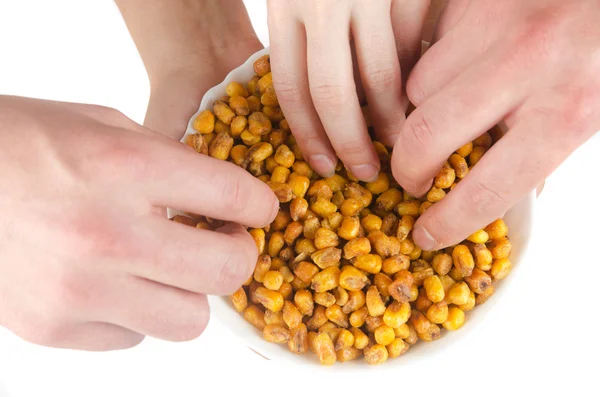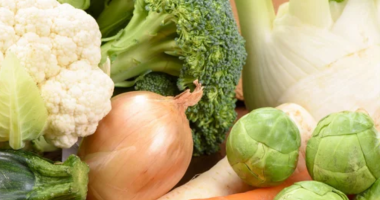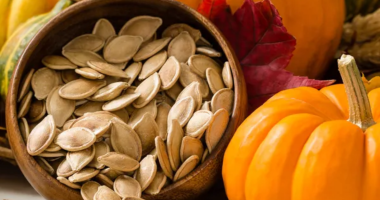A look at “Fried Corn nutrients benefits and down side” Fried corn is a delicious and versatile dish that can be prepared using various methods, such as pan-frying, deep-frying, or grilling. It is a popular dish in various cultures and can be enjoyed as a side dish or as a standalone meal. Fried corn is not only tasty but also packs a nutritional punch, making it a healthy addition to your diet. Let’s discuss the fried corn nutrients, benefits and down side.
Fried corn nutrients and benefits
1. Antioxidants: Corn, especially yellow corn, contains lutein and zeaxanthin, antioxidants that may help protect your eyes from age-related macular degeneration and cataracts. While frying may reduce some of these antioxidants, some research suggests they’re still present in significant amounts.
2. Fiber: Corn is a good source of dietary fiber, which can aid digestion, regulate blood sugar, and promote heart health. However, frying can reduce the fiber content to some extent.
3. Vitamins and minerals: Corn is a decent source of several vitamins and minerals like B vitamins, potassium, and magnesium. These nutrients are important for various bodily functions, and frying may not completely eliminate them.
4. Energy Boost: Corn is a good source of carbohydrates, providing a quick and sustained energy boost. Frying corn can enhance its flavor and make it a satisfying side dish or snack that keeps you energized throughout the day.
5. Versatile Cooking Method: Frying corn allows you to experiment with different flavors and seasonings. You can add spices, herbs, or even mix it with other ingredients like bell peppers, onions, or cheese to create a variety of tasty dishes.
6. Enhanced Flavor and Texture: Frying corn brings out its natural sweetness and adds a delicious crispness to the kernels. The process of frying caramelizes the natural sugars in corn, resulting in a flavorful and crunchy texture.
7. Quick and Easy Preparation: Fried corn is relatively quick and easy to prepare, making it a convenient option for a weeknight meal or a gathering with friends and family. It can be cooked on the stovetop or in a deep-fryer, depending on your preference.
8. Versatile Serving Options: Fried corn can be served as a side dish, a topping for salads or soups, or even as a standalone snack. Its versatility allows you to incorporate it into various cuisines and dishes, adding a burst of flavor and texture.
Corn nutrients was sourced from USDA
Downsides of fried corn
High fat and calorie content: Frying adds fat and calories to corn, making it less suitable for those watching their weight or fat intake. Excessive consumption can contribute to weight gain and health risks associated with a high-fat diet.
Sodium content: Depending on the preparation, fried corn can be high in sodium, especially if coated with seasonings or served with salty dips. High sodium intake can contribute to high blood pressure and other health problems.
Loss of nutrients: Frying at high temperatures can destroy some of the beneficial nutrients in corn, including vitamins and antioxidants.
Overall: While fried corn can be enjoyed occasionally as part of a balanced diet, it’s important to be mindful of the downsides. Consider healthier ways to cook corn, like grilling, roasting, or boiling, which retain more nutrients and have less added fat and calories. You can also add spices and herbs for flavor without relying on salty seasonings.
Can fried corn be a healthy option for individuals with dietary restrictions?
Fried corn can be a healthy option for individuals with certain dietary restrictions, but it’s important to consider a few factors:
Gluten-Free: Corn is naturally gluten-free, which means that fried corn is a safe choice for individuals with gluten sensitivities or celiac disease. However, it’s crucial to ensure that the frying process doesn’t involve any cross-contamination with gluten-containing ingredients or equipment.
Vegan/Vegetarian: Fried corn can be a suitable option for individuals following a vegan or vegetarian diet. It doesn’t contain any animal products unless additional ingredients like butter or cheese are added during the frying process. To keep it plant-based, you can use oil or vegan butter substitutes.
Allergies: If you have allergies, it’s essential to be cautious about the ingredients used in the frying process. For example, if you’re allergic to certain oils or seasonings, it’s important to choose alternatives that are safe for you. Additionally, if you have an allergy to corn itself, fried corn would not be a suitable option.
Caloric Intake: While fried corn can be a healthy choice for individuals with dietary restrictions, it’s important to be mindful of the cooking oil and portion sizes. Frying corn can add calories, so it’s best to use healthier oils like olive oil or avocado oil and practice portion control to avoid excessive calorie intake.
Other Dietary Considerations: If you have specific dietary considerations, such as diabetes or high blood pressure, it’s important to consider the overall nutritional composition of your meal. Pairing fried corn with other nutrient-dense foods like lean proteins, vegetables, and whole grains can help balance your meal and support your dietary needs.
As with any food, it’s important to listen to your body and consult with a healthcare professional or registered dietitian who can provide personalized guidance based on your specific dietary restrictions and health goals. They can help you determine if fried corn aligns with your dietary needs and suggest any modifications or alternatives if necessary.
ALSO READ: 10 plant based foods with all essential amino acids (Complete proteins)


![Best time to eat corn for weight loss - [Powerful Guide]](https://soundhealthandlastingwealth.com/wp-content/uploads/2024/01/Corn-for-weight-loss-380x200.webp)







